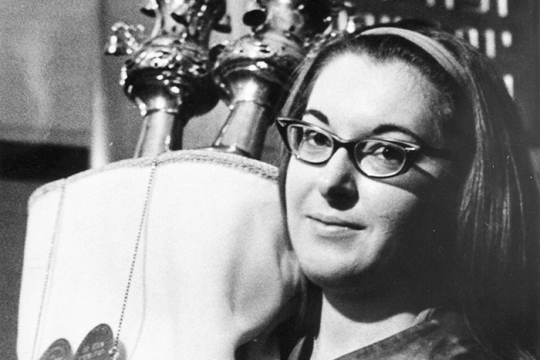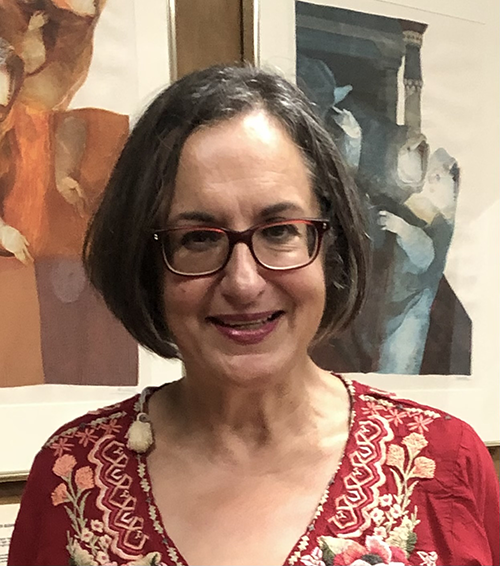
Some of the best stories from our tradition involve a question presented on one level that is answered on a completely different and surprising level.
A Saturday Night Live cold open entitled "Home Goods" exemplifies this type of story. The manager of a Home Goods store asks a couple of regular customers to star in a testimonial ad sharing what they would really like for the winter holidays.
At first, the older women are reluctant to name anything. When they are asked, "What do you want?" they say, "Don't spend too much money on me," and "Oh, nothing. Just a small…nothing."
But when the manager presses and asks, "What do you really want?" they say, almost in unison, "Grandchildren." From that moment on, the answer to every question is "Grandchildren."
When the manager tries to re-direct them to items the store sells, like kitchen tools, one of them suggests a clever yet crude way to use scissors that might make their daughter and son-in-law "give me a grandchild I can take to Red Lobster."
You can tell this is not a casual wish. They have given a great deal of thought to the exact details of the stereotypical grandparent experience, saying things like, "I want to take her to the science museum and buy her a necklace with a bug in it."
Modern families come in all forms and configurations. There are also different ways children enter our lives: adoption, surrogacy, IVF, et cetera. No matter how it happens, though, the desire to see one's family legacy continue can eclipse any other material wants. For some, that burning, even desperate, yearning for grandchildren supersedes everything else.
This skit gave me a new understanding of some of the most tedious sections in the Book of Exodus. If you've ever read the instructions for the building of the Mishkan, the portable Tabernacle that the freed Israelites built in the desert, you'll understand. The list of building materials is seemingly endless, and the building instructions are indecipherable. Where is a YouTube tutorial when you need one?
Even the well-known verse, "And let them make Me a sanctuary that I may dwell among them," (Exodus 25:8-9) seemed gratuitous to me. Suddenly the God whose presence follows the Israelites in a pillar of cloud by day and a pillar of fire by night needs a street address?
Over time, I came to appreciate those details, and as a cantorial soloist, noticed that they were accompanied by elaborate tropes. As a rule, texts that have more interesting musical patterns are places we are called upon to really pay attention. To paraphrase a well-known saying, "God is in the details."
For Franz Rosenzweig, the building of the tabernacle was the most important event in the Torah ("The Torah: A Modern Commentary," 543). For 400 years, the Israelites had built cities for the Pharaohs; now they had the opportunity to build something for themselves. I think those who were freed from slavery had a vision of something, a burning desire just as visceral as that of the would-be grandmothers in the Saturday Night Live skit who saw themselves holding the hand of a six-year-old on the way to the science museum. Creating that thorough list of building materials and construction tasks was a yearning, a desperate longing for something. And that something was…home.
How much courage did it take for our ancestors to leave Egypt, walk into an uncertain future, and leave the only homes they knew to find new homes in a new place? How relatable is the desire expressed by many of them to return to the familiar and go back to Egypt?
Many of us long to return to an idealized version of pre-pandemic synagogue life. Recent events and trends in our world, including the pandemic, the increase in synagogue collaborations and mergers, and national political strife have all exacerbated our individual loneliness to an unprecedented degree. As Jews, our job is to face these challenges with determination, finding new ways to create meaningful connections in our spiritual homes.
All of us have a role to play in turning our deepest yearnings into a bright reality. Our communities will truly be places of joyful Judaism for all of us, and we will be… home.
Related Posts




